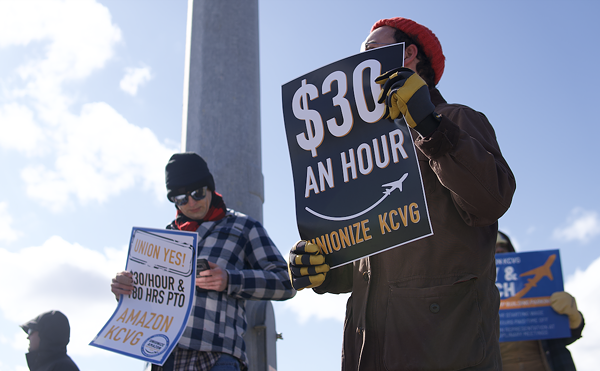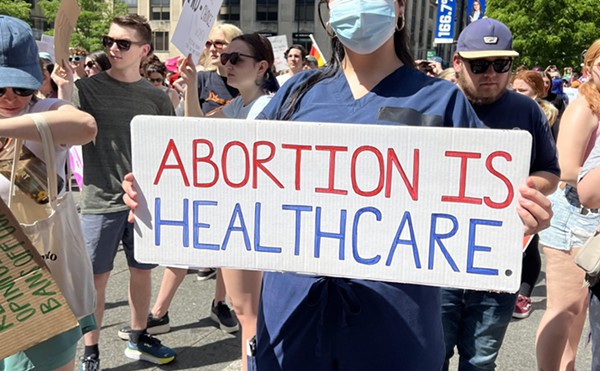Cases involving traffic stops always interest me because of the potential constitutional implications from something so simple.
The Fourth Amendment to the U.S. Constitution protects us from unreasonable searches and seizures. When a driver is stopped by a police officer, there has been a seizure. So the Fourth Amendment has been implicated, although not necessarily violated. In routine cases, this isn't really a problem. But sometimes after the stop there is a search of either the driver or the car or both. That also implicates the Fourth Amendment.
The U.S. Supreme Court has handed down many opinions about whether the driver has been unreasonably detained in such stops and, if the driver is arrested, whether evidence turned up from searches can be used against the driver at trial.
But until now the court has never definitively answered the question of whether a passenger is also seized during a traffic stop. This is significant because, if so, the passenger can make a Fourth Amendment challenge.
If not, the passenger cannot argue that evidence against him that turned up as a result of the stop should be suppressed.
In the case of Brendlin v. California, handed down at the end of this year's term, the high court has held that a passenger is also seized during a traffic stop.
Two police officers in Yuba City, Calif., saw a parked car with expired registration tabs on the license plates. Later the officers saw the same car driving on the road. Even though the car had a proper temporary permit, the police decided to stop the car anyway to investigate further. When they did, one of the officers thought he recognized the passenger as one of the Brendlin brothers, who, the officer thought he recalled, was a parole violator.
The officer asked Brendlin to identify himself, ran the information and verified the fact that he was a parole violator with a warrant out for his arrest. The officer ordered Brendlin out of the car at gunpoint and arrested him for the parole violation. He then searched Brendlin and found drug paraphernalia on him. The driver and the car were also searched, and more paraphernalia used to make methamphetamine was found.
Brendlin was arrested and charged with the possession and manufacture of methamphetamine. At his trial, he argued unsuccessfully that the drug evidence should be suppressed because the police had no basis to stop the car in the first place and because he was improperly seized in the stop.
The Supreme Court of California held that, although the car stop was not proper, Brendlin, as the passenger, was not "seized" in the constitutional sense and as a result could not make a Fourth Amendment challenge. The reasoning of the California high court was that Brendlin was not seized because the driver, not Brendlin, was the target of the police investigation; the officer didn't direct any show of force or authority toward Brendlin; Brendlin didn't submit to police authority; and any intrusion on his freedom to leave was incidental.
The U.S. Supreme Court accepted the case for review from the California Supreme Court decision.
The police can always make a traffic stop when they see a car break a law, such as speeding, weaving or crossing the center line. The police can also stop a car based on what the law calls a "reasonable, articulable suspicion" of some criminal activity. But that is more than just a hunch.
By the time the Brendlin case got to the U.S. Supreme Court, the state had conceded that the police had no basis to stop the car in the first place. Under existing law, that would have helped the driver if she tried to get the drug evidence in the car suppressed.
But the state argued that Brendlin, as the passenger, had no grounds on which to complain about the evidence used against him. The high court disagreed.
The U.S. Supreme Court has already adopted a test to determine whether, in response to police authority, there has been a seizure in the Fourth Amendment sense. If a reasonable person would feel free to walk away, there has not been a seizure; otherwise there has been.
It's always been hard for me to imagine how anyone involved in a traffic stop by police — driver or passenger — would feel free to just walk away. But that's the test.
Applying that test to the facts of this case, Justice David Souter, writing for a unanimous court, held Brendlin had been seized at the moment the car was pulled over. It was reasonable for Brendlin to assume that the show of authority by police was at least partly directed toward him, he was deemed to have submitted to police authority by passively staying in the car and he was not free "to ignore the police presence and go about his business."
Souter wrote, "Holding that the passenger in a private car is not (without more) seized in a traffic stop would invite police officers to stop cars with passengers regardless of probable cause or reasonable suspicion of anything illegal. The fact that evidence uncovered as a result of an arbitrary traffic stop would still be admissible against any passengers would be a powerful incentive to run the kind of 'roving patrol' " that would still violate the driver's Fourth Amendment rights."
As a result of this decision, Brendlin will get another chance to argue the drug evidence should be suppressed.
It's surprising it has taken the high court so long to decide this issue. But this is clearly the right decision.
And unanimity is rare these days — as evidenced by the other end-of-term decisions of the high court. I'll address some of those in future columns.
Marianna Brown Bettman, a former Ohio appeals court judge, teaches at the University of Cincinnati College of Law.





